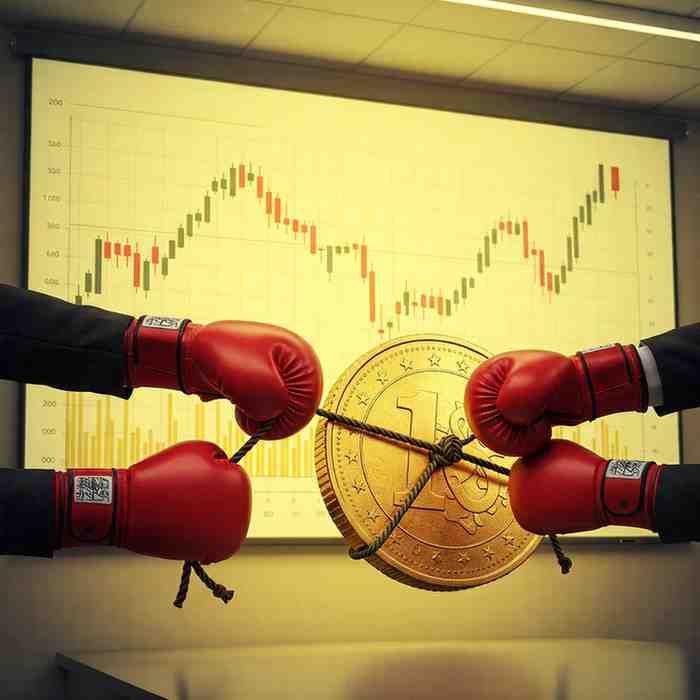
What is Revenge Trading? Understanding the Emotional Pitfall in Trading
What is Revenge Trading? Understanding the Emotional Pitfall in Trading
Trading in the financial markets can be an exhilarating and potentially rewarding endeavor. However, it’s also fraught with psychological challenges. One such challenge that can lead to significant losses is revenge trading.
So, what exactly is revenge trading?
What is Revenge Trading?
Revenge trading is an emotional response where a trader attempts to recoup losses by making impulsive and often larger trades immediately after experiencing a losing trade or a series of losses. Instead of analyzing the situation objectively and sticking to their trading plan, the trader is driven by a desire to “get back” at the market for the perceived injustice of their loss. It’s fueled by frustration, anger, and a feeling of needing to prove oneself right.
Think of it like this: you make a trade based on your analysis, but it goes against you, resulting in a loss. Instead of calmly reviewing your strategy and identifying potential errors, you feel a surge of anger and a strong urge to jump back into the market immediately, often with a larger position and without proper analysis, hoping to quickly recover your lost capital.
How Revenge Trading Works?
The mechanics of revenge trading are often characterized by a deviation from a well-defined trading strategy. Here’s how it typically unfolds:
- Loss Trigger: A losing trade or a series of losing trades triggers negative emotions like anger, frustration, and a bruised ego.
- Emotional Override: These emotions overpower logical thinking and the trader’s pre-defined trading plan.
- Impulsive Action: The trader feels an immediate need to “win back” the lost money. This leads to hasty decisions without proper analysis or consideration of risk management.
- Increased Risk: Revenge trades often involve larger position sizes than usual, as the trader tries to recover the losses quickly. This significantly amplifies potential future losses.
- Ignoring Strategy: The trader may abandon their established trading rules, such as entry and exit points, stop-loss orders, and position sizing guidelines.
- Focus on Recovery, Not Profit: The primary goal shifts from making profitable trades to simply recovering the previous losses, clouding judgment and leading to further poor decisions.
Common Causes of Revenge Trading
Several factors can contribute to a trader falling into the trap of revenge trading:
- Ego and Pride: Losing can feel like a personal failure, and the desire to prove oneself right can be a powerful motivator for impulsive action.
- Frustration and Anger: The feeling of being “wrong” or that the market acted unfairly can lead to anger directed at the market itself, prompting a retaliatory response.
- Fear of Missing Out (FOMO): After a loss, a trader might feel pressured to quickly get back in the market and participate, fearing they’ll miss out on potential winning opportunities while being sidelined.
- Lack of a Trading Plan: Without a clear and well-defined trading strategy, traders are more susceptible to emotional decision-making in the face of losses.
- Insufficient Risk Management: Not having proper risk management rules in place can make losses feel more significant, increasing the urge to recover them quickly through risky trades.
- Belief in Control: Some traders might mistakenly believe they have more control over the market than they actually do, leading them to try and force a win after a loss.
Risks and Consequences of Revenge Trading
Engaging in revenge trading can have severe negative consequences for a trader’s capital and psychological well-being:
- Significant Financial Losses: The most direct consequence is often a rapid accumulation of further losses due to impulsive and poorly analyzed trades with increased risk.
- Erosion of Trading Capital: Repeated revenge trading can quickly deplete a trader’s account, potentially leading to them being forced out of the market.
- Emotional Distress: The cycle of losses and emotional trading can lead to increased stress, anxiety, and even depression.
- Damage to Trading Psychology: Revenge trading reinforces bad habits and can make it harder to develop a disciplined and objective approach to trading in the future.
- Abandonment of Strategy: Continuously deviating from a trading plan due to emotional impulses undermines the effectiveness of the strategy and makes consistent profitability unlikely.
- Loss of Confidence: Repeated failures due to revenge trading can severely damage a trader’s confidence in their abilities.
Conclusion
Revenge trading is a dangerous emotional trap that can derail even the most promising trading careers. Recognizing the urge to retaliate against the market after a loss is the first crucial step in avoiding it. Cultivating emotional discipline, adhering to a well-defined trading plan with strict risk management rules, and taking breaks after losses are essential strategies to prevent falling victim to this impulsive behavior. Remember, successful trading is a marathon, not a sprint, and emotional control is just as important as technical analysis and strategy.
About GigaPro: GigaPro, the mobile trading app from Goodwill Wealth Management, offers a robust and secure platform for engaging in the stock market. Download the app today to start your trading journey on your Android device: (Download GigaPro Mobile App) or on your Apple device: (Download GigaPro Mobile App).
Disclaimer: This blog post is intended for informational purposes only and should not be considered financial advice. The financial data presented is subject to change over time, and the securities mentioned are examples only and do not constitute investment recommendations. Always conduct thorough research and consult with a qualified financial advisor before making any investment decisions.
